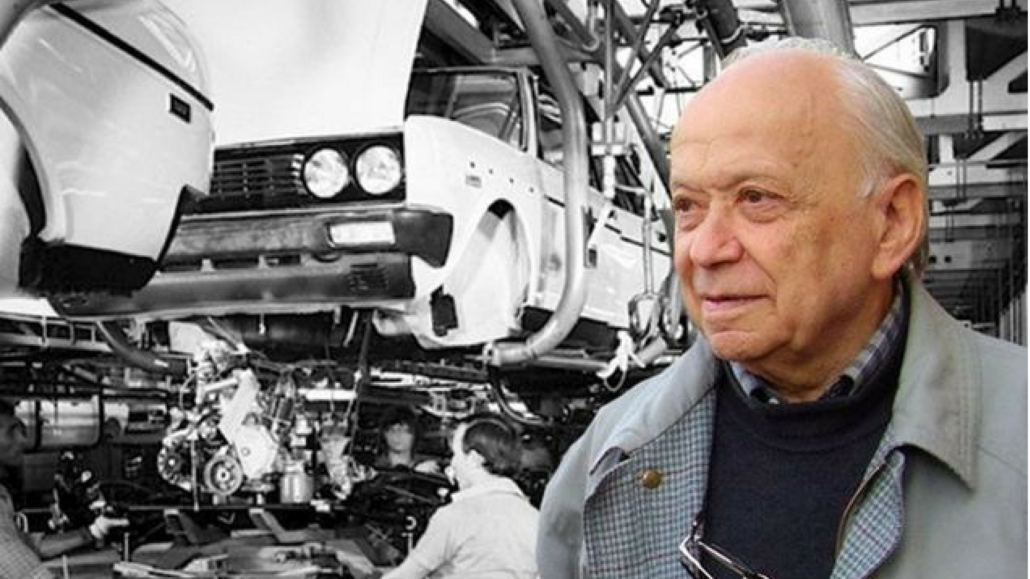Remembrance
In memory of Carlo Carlevaris: One of the last ‘worker priests’
The working priests—those priests who chose to live their pastoral mission in the world of work—represented a link between different and sometimes converging demands for change: the message of the Second Vatican Council and working culture.

The “worker priest” Carlo Carlevaris has died. We almost completely lost the memory of experiences of priests in the factory, especially since the crisis of the Fordist system and the disappearance of the political forces of the workers’ movement that has created a fracture in Italian history. We could make a partially different discourse for the Church, which in recent times seems to have assimilated some reforming tendencies developed during the 20th century. The working priests—those priests who chose to live their pastoral mission in the world of work—represented a link between different and sometimes converging demands for change: on the one hand, the watchwords of the Second Vatican Council, and especially those for a Church “of the poor and for the poor”; on the other hand working culture. In the long militant biography of Carlevaris it is possible to reread the main chapters of this story.
Born in the 1926, formed in the oppressive austerity of the seminaries of that time, he became a priest of the Turin diocese in June 1950. He started to get close to the experience of the “chaplains of the work,” who guaranteed “spiritual assistance” in the factories in competition with the Communists. He exercised his ministry at the Michelin, Lancia and Fiat Grandi Motori. As a young priest, he was in contact with those French priests who decided to share and support the lives of the workers: working to live, living in the working-class districts and leaving apart the signs of clerical belonging.
Between 1954 and 1959 the “Holy Office” intervened to crush the experiment, sanctioning the incompatibility between priesthood and manual labor. In Italy only the echo of this dispute arrived, but Carlevaris and his (few) companions could count on some pioneering figures such as Bruno Borghi and Sirio Politi in Viareggio. In the ‘60s, and during the resumption of labor unrest, Vatican II rehabilitated the experiment of priests in the factory. In 1968 Carlevaris obtained permission to go and work at Lamet. The same year, together with Luisito Bianchi (former National Assistant of the ACLI, the Association of Christian Italian Workers) and Giovanni Carpené he created the first national network.
In the first meeting of the network, which took place in Chiavari in July 1969, evangelization was discussed in the sharing of the working life. However, starting from the national meeting in Reggio Emilia (1973), the political line was perfected in a substantially anti-capitalist direction: a “socialist choice” similar in many ways to that made by the ACLI. At the national conference in Serramazzoni, entitled “Against the anti-labour use of the faith,” the conflict with the hierarchical Church exploded, considering the experience of the priests in the factory potentially prejudicial to the authority of the priest.
For a long time the “working priests” have been able to count on the support of Cardinal Pellegrino, who has chosen to involve the working priests in the writing of the pastoral letter “Walking together,” a true and proper manifesto for a “poor Church.” Carlevaris, interviewed by Adista, recalled: “we came to this conclusion: let stay on the border from a political point of view, because most of us did not have a precise party position, despite having made the choice of left; and also from the ecclesial point of view, because many of us are in conflict with our bishops (some had already been suspended, others no longer had dialogue with our bishop).”
The ‘80s saw the crisis of the movement. However, Carlevaris continued his militancy in the ranks of the FIM-CISL and the GIOC (Christian Workers’ Youth). At the center of the battle once again the gospel, to be lived outside the temple and with dirty hands. As Giuseppina Vitale wrote, who has reconstructed biographies and itineraries of the Italian worker priests: “not to give a ‘soul to the factory,’ but to find the soul inside the factory.” Traces of a “different church” in a historical time that seems today really far away.
Originally published at https://ilmanifesto.it/la-pastorale-di-un-prete-operaio-la-morte-di-carlo-caelevaris/ on 2018-07-10
